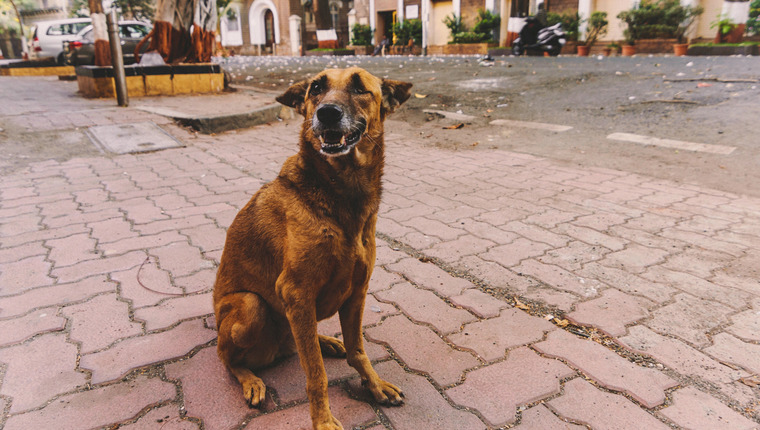
Street dogs are a common—if unwelcome— site in India’s larger cities. Whether native to the region or strays, the ubiquitous canines get little help and are victims of human development and negative perceptions. People complain that dogs carry disease and are aggressive, even though studies show this isn’t the case.
The situation for these dogs is dire—many street dogs are dying before their first birthday. Fortunately, a new government initiative is providing essential care to these loving dogs.
Helping Indian Street Dogs
Vadodara is the second largest city and cultural capital of the Indian state of Gujarat. Here, stray dogs escape the grueling heat and coexist with humans in the city’s streets and plazas. Unfortunately, prevailing cultural attitudes mean many dogs are either neglected or abused. Paradoxically, negative attitudes toward stray dog populations have increased their numbers, exacerbating the problem.
In 2017, Humane Society International/India (HSI) partnered with local government authorities in Vadodara to find solutions to this growing issue.
A report in HSI’s official blog reports that, in partnership with the Vadodara Municipal Corporation, HSI India developed a three-pronged program to humanely manage the stray dog population. The program included a widespread spay/neuter campaign, vaccines for dogs, and community education about dog welfare.
HSI experts knew that in order to create long-term changes, public views needed to change. While clinical staff combed the city rounding up dogs for surgery, community engagement teams went door-to-door speaking with residents and organizing workshops about the street dog issue, as well as animal behavior classes.
Fortunately, the program has surpassed expectations. Not only has HSI spayed/neutered and vaccinated over 23,000 dogs—equal to about 86% of the street dog population— but public attitudes towards the dogs have improved. Notably, complaint calls about street dogs have decreased by 60%.
Creating Lasting Change
More importantly, local communities are now actively engaged. Calls to advise HSI/India about unneutered/unvaccinated dogs have replaced complaint calls.
The efforts to engage and educate the local community have created a sustainable system for managing street dog populations. They’ve also ensured the dogs’ safety and health too. Citing the program’s success and popularity, HSI/India hopes other countries and organizations can implement similar solutions.




